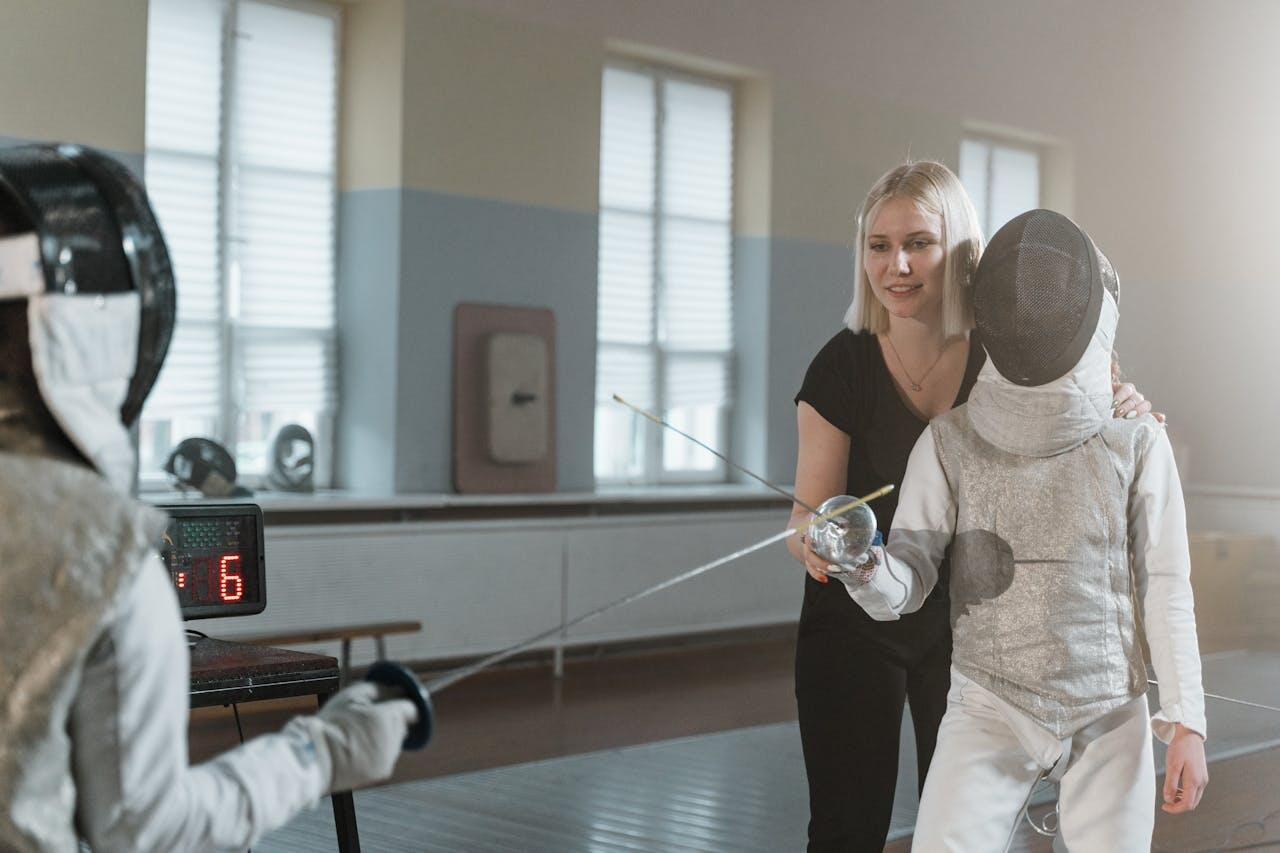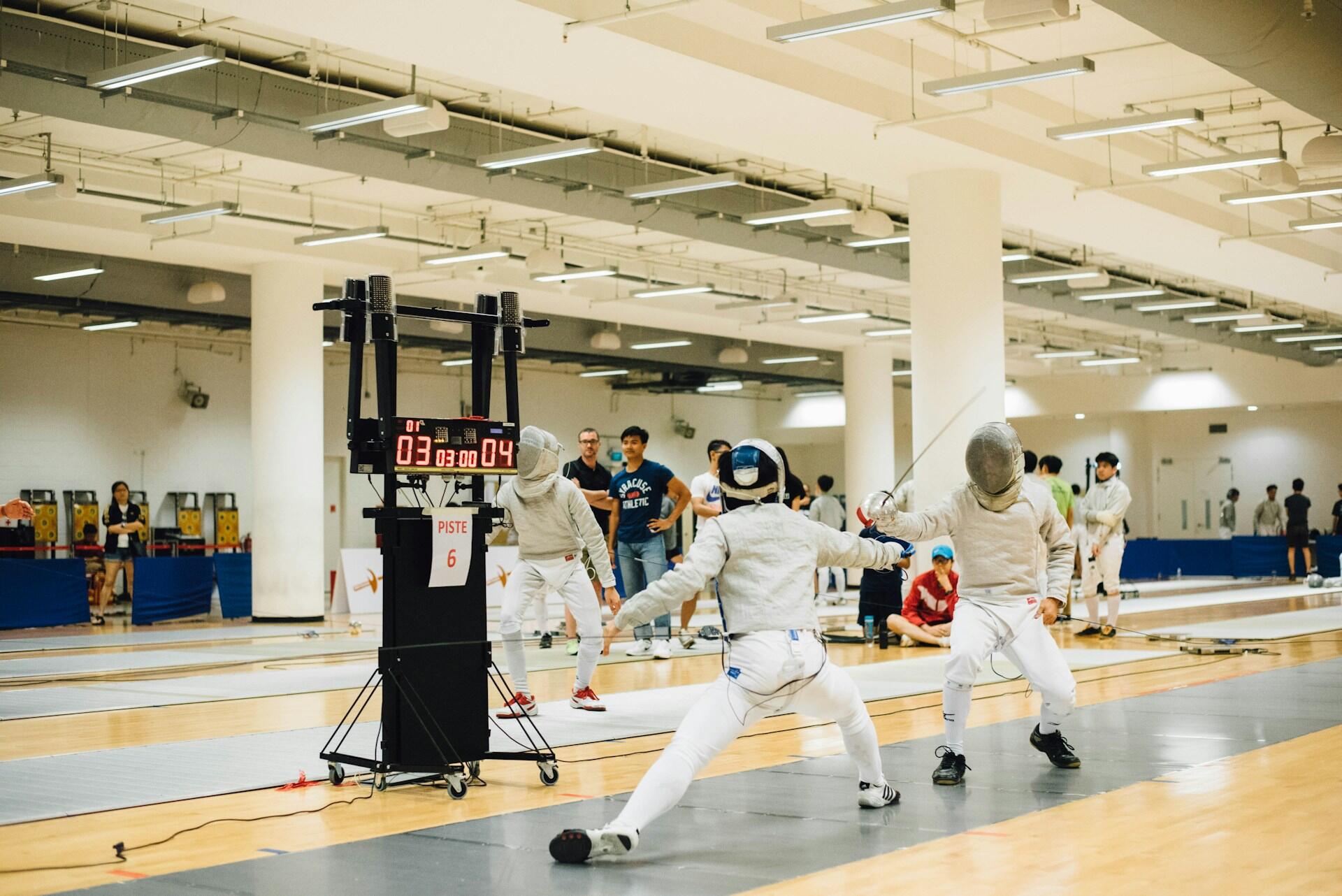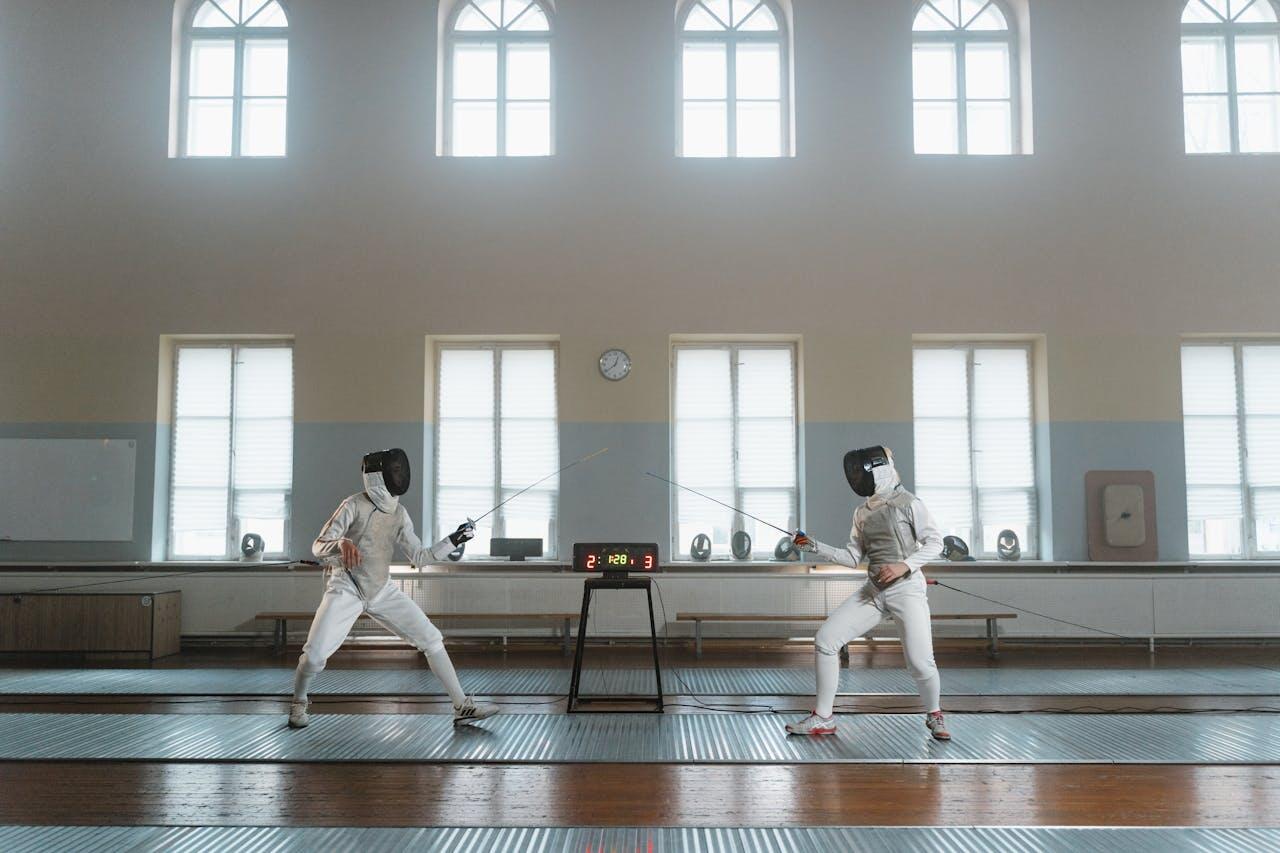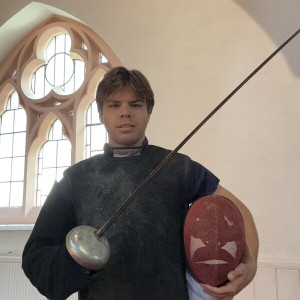Fencing is a unique sport that requires not only agility but also strategy and precision. In order to understand and appreciate this sport, you will need to understand the rules as well as the classes. This is also something that each fencers need to master to be successful in this sport. In this article, we are going to explore the fencing classes and their rules in more detail. This should be of use to both seasoned and novice fencers all over the world.

Types of Fencing Classes
To become a successful fencer, it is essential to understand the different fencing classes available. This knowledge will help you choose the right class to start with, supporting your growth as a fencer.
Beginner Classes
Beginner fencing classes are specifically designed for people who are new to this sport. In this kind of class, you will be introduced to all fencing equipment, weapon handling, basic techniques as well as footwork. This will be the place where you will learn about the history of fencing as well as the proper forms as well as safety. If you join a more detailed beginner class, you will also learn about fencing and philosophy. These will only help you understand as well as appreciate this sport better.
Intermediate Classes
If you are someone who has some grasp on the fundamentals of fencing, then an intermediate class would be more focused and suitable for you. These classes are more about refining techniques of fencing and developing your existing tactical skills. It is during the intermediate classes that students will start participating in bouts. This will enable you to not only improve your skills but also help you practise your strategies and decision-making skills.
Advanced Training
The advanced training classes are made specifically for competitive fencers. In these sessions, you will be learning high-level fitness conditioning as well as mental preparation in your bouts.
It is during this training that you will get more detailed guidance on preparation to face your fencing opponents.
Private Lessons
If you want to start learning fencing with a lesson that is personalised to your specific needs, private lessons are the way to go. This is highly useful for fencers to improve specific areas as well as work towards their strengths. This kind of lesson usually has specialised drills that are most of the time not covered in group sessions.
Specialised Workshop
Just like other sports, fencers also have specific workshops that specialise in specific aspects of fencing.
For example, if you are someone who is looking to learn more about blade work, you can join workshops that are specifically for those who are looking to learn about this.
These kinds of workshops are conducted by experienced coaches and professionals and offer fencers the chance to update and refine their skills.

Structure of a Fencing Lesson
When it comes to fencing lessons, it is important to have meticulously planned lessons. This not only ensures a balance in the development across all aspects of this sport but also ensures the fencers understand and grow to master this sport.
Warm-up
When it comes to fencing, just like any other sport, it is important to have a good warm-up session. This not only prepares the body for the physical activity it is about to undergo but also prepares your mind. Among the warm-ups you will do as a fencer are stretching, cardio as well as dynamic movements. These not only enhance flexibility but also prevent injuries. The warm-ups in fencing incorporate movements for the prime muscles to help during bouts.
Footwork Drills
When it comes to fencing, footwork is extremely important. When you learn fencing, a big part of your lessons will be spent learning advancing, retreating, lunging and side-stepping. These drills are important to build your agility and your coordination to ensure effective movements. When you go for fencing lessons, you will be introduced to variations of these to ensure that the students are challenged while simulating scenarios you will experience during bouts.
Blade Work
When it comes to blades, your instructor will teach you techniques such as parries, thrusts and ripostes. When it comes to developing precision and control, these exercises help. Weapon handling is extremely important and advanced students will have to practice compound attacks and defensive actions.
Tactical Traning
In order to help fencers learn specific strategies that can help them read and outwit their opponents they will undergo tactical training. These exercises are usually conducted in pairs or smaller groups. This is to simulate real-life bouts. Fencing coaches use this method to emphasise the importance for fencers to adapt quickly and use their quick decision-making skills during their sessions.
Sparring
Sparring is another part of the fencing lesson that helps students to apply what they have learned in a controlled session. This is a great way for fencing coaches to help you refine your skills while ensuring that you have a competitive setting that will prepare you for real-life bouts. This is a great way to build your confidence as a fencer and practice your agility and quick-thinking skills.
Cool Down
Every sport concludes with a cool down and fencing is no different. Cooling down will not only help you relax your muscles but also reduce the risk of soreness after your lesson. On top of stretching your body, this is also the time you will have discussions with your coach about your progress as well as obtain feedback about your current form and techniques.
Rules for Engagement
When it comes to fencing, the rules of engagement are something that governs the interaction between a fencer and their opponent. The main reason for this in place is to ensure that each of the players is safe as well as there is fair play during the bouts.
Let us look at some of the rules of engagement in fencing.
Starting a Bout
When starting a bout, the fencers will salute each other, the referee and the audience. A salute might seem like such a simple and insignificant thing but it is a gesture that not only emphasises respect but also sportsmanship. This underscores fencing’s roots as well which are chivalry as well as mutual respect.
Positioning
Each fencer will stand at a specific distance at the opposite ends of the piste. The bout starts when the referee signals with the command "En garde, prêt, allez!" (On guard, ready, go!). Proper positioning is essential as it ensures fairness and allows each fencer to prepare both physically and mentally for the bout.
Valid Actions
In fencing, there are a few different weapons and each of these weapons has its own valid action. A good example can be seen in foil. For this weapon, only thrusts to the torso count as valid meanwhile, for the sabre, both thrusts and cuts to the upper body are valid. A fencer must have a clear understanding of valid actions and this is what will help them focus their attacks.
Right of Way
There is a right-way rule when it comes to awarding fencers points. The fencer who is initiating the attack has the priority unless the other successfully defends and then counterattacks. This is one of the few rules within fencing that actually adds to the depth of the sport.
Stopping the Bout
When the referee has the action, it is only for valid touches, violation of rules or safety concerns. When this happens, the fencers will have to return to their starting position before resuming the bout. In fencing, a referee is pivotal to ensuring order as well as adherence to the rules.
Scoring System
When it comes to fencing, the scoring system varies from weapon to weapon. Although this is the case, all of these methods ensure not only fairness but accuracy.
Electronic Scoring
In this modern age, it comes as no surprise that fencing relies on electronic systems that register hits. Each of the weapons that is used during a bout is equipped with a special sensor that transmits signals to a scoring box. This box will then display the valid touches with lights and sound which ensures precision as well as transparency.

Scoring by Weapon
Foil
When using this weapon, a fencer will get points if they land a thrust on the torso. This includes the front as well as the back. A white light will indicate an off-target hit while a coloured signal means a valid touch or point.
Epee
When using the epee, the entire body is a valid target and for this weapon, there is no right of way. Double touches when both fencers score simultaneously are pretty common when using this weapon. One thing about the opee is that it does not have off-target rules and this is what makes this weapon especially unique and challenging.
Sabre
When points are scored with both thrusts and cuts to the upper body, a sabre is used. The right-of-way rule applies and off-target hits do not register. These bouts are fast-paced hence why quick reflexes and precise execution are used.
If you are interested in fencing due to its many benefits, you should head over to Superprof to find a coach who can not only help you learn this sport but also master and appreciate it. Our coaches are not only skilled but experienced so we are sure they will be able to help you through your fencing journey successfully.
Summarise with AI:











